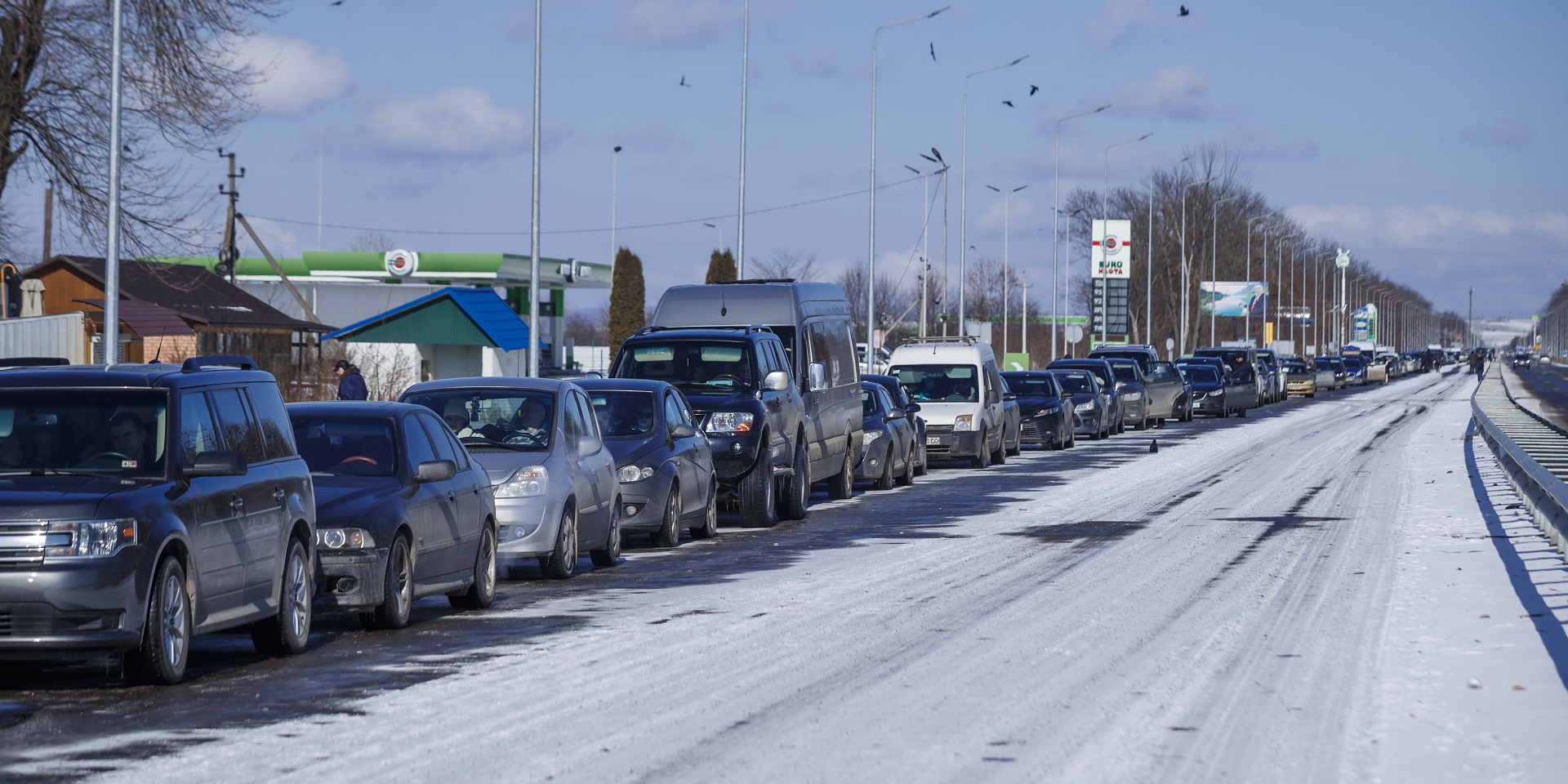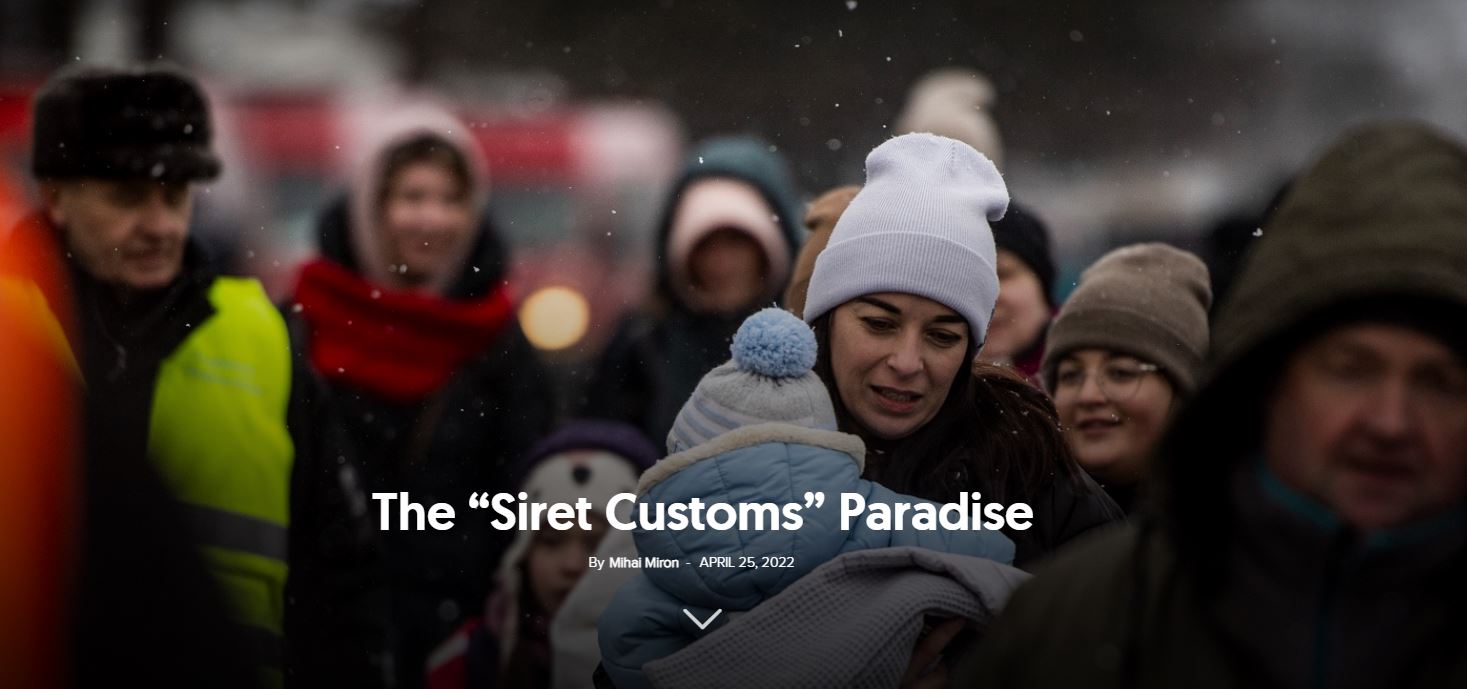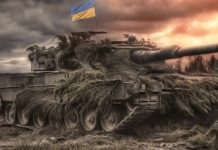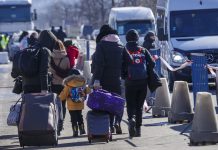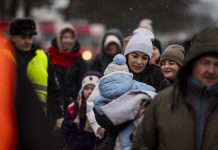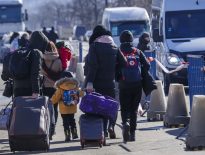My husband and I realised that the inevitable had happened; rumours of a war in Ukraine had intensified in the previous month.
An unusual noise woke me up at 5 o’clock on the morning of February 24th. I looked out the window and was struck by the large number of cars driving through the centre of Sumi in eastern Ukraine, near the Russian border.
We kept our gas tank full, so we could flee to western Ukraine, in case our worst fears came true. We woke up our children with the terrible news that the war had begun. I didn’t have to tell them twice to get out of bed. They were so frightened by the idea of war that they had barely eaten in the previous two days.
We packed our bags very quickly, without taking anything but the essentials. We had to leave our dog, our cat and everything that we loved and which made our house a home.
We also left my parents, who were unable to break away from their birthplaces, no matter what would happen. We did not know how we would get out of the Sumi region, because we were told that enemy tanks were blocking our way to Kyiv. We left anyway, hurried by the explosions that were taking place 50 kilometres from our city.
We were five frightened passengers in the car that did not stop for almost 400 kilometres, until we reached Kaniv (Cherkasy region), a journey that took us nine hours: me, my husband, Serhiy, our children, Rostislav, 11 years old and Polina, 8 years old, and my husband’s mother, Nina, 67 years old. It was already night when we arrived in Kaniv. There, we waited for two hours at the local checkpoint because each car and its passengers were being checked.
We were very tired and thought about sleeping for an hour so that my husband, who was driving, could rest, and then continue our journey west, to the city of Ivano-Frankivsk (between Chernivtsi and Lviv). We hoped we would be safe in that place, even though we didn’t have anyone there. We stopped the car on the road, after we were lucky enough to be able to refuel at a gas station in the Zhytomyr region. There were many cars parked on the road, with people trying to rest before resuming their journey. We could not get much shut-eye because of the whizz of the planes. We didn’t know if they were ours or the Russians’.
We ran out of water for the rest of the way—no gas station had water, tea or other drinks, and stocks were already depleted.
In the town of Leticiv (Khmelnytskyi region), we were stuck in a traffic jam for nine hours, during which time we advanced only nine kilometres. We were crawling like snails, and people who could no longer bear the slowness got out of the cars to move, to walk their babies or pets. There was a forest around us. We had no phone reception, and there were no stores from which to buy food. We used the water left in the bottle to moisten our lips. During this time, we also had unpleasant surprises, when some drivers in luxury cars passed us, sometimes escorted by police and pretending to be on a special mission.
We eventually were able to buy some food in the town of Khmelnytskyi (more than 700 kilometres from the town we had left). There we managed to refuel the car. After a long search, we found accommodation at a hostel in the city of Chortkiv, near the border with Romania, where we stayed for two days and where we were finally able to really eat. We prayed all the way to Chortkiv, and God helped us on this difficult journey, when it would have been so easy to panic. In Chortkiv, we had to hide twice in a bomb shelter during the night.
It was very cold in the shelter, so we got sick. Polina, my daughter, was scared and cried a lot and I was trying to calm her down. In the same shelter, I met parents who were now protecting their children for the second time from the Russian bombing; they were refugees from Syria.
Our next stop was in the city of Chernivtsi, where we were hosted at the “Solomon” School, which belongs to the Seventh-day Adventist Church. There, we warmed up and received cooked food. An Adventist pastor from Chernivtsi gave us a contact from Romania and this is how we arrived at the youth centre in Cosna, after crossing the border into Romania.
We felt the wave of sympathy of the Romanians as soon as we crossed the border: customs officers, policemen, volunteers—they all helped us with information, translation services, food, medicine, SIM cards, you name it. And in the centre of Cosna, we found truly exceptional conditions.
Romania is a beautiful country. We were impressed by the scenery, the settlements, but especially the people and their warmth. Now we are hosted by a kind family near Ploiești, in Prahova County, but my thoughts are constantly directed to those at home. I think of my parents and my husband’s family, who remained in Ukraine, only 40 kilometres from the Russian border. I think of my husband, who can’t leave the country because of martial law. Every day begins the same as it ends—with phone calls to see if our family members are well.
We are preparing to go to Britain, to my husband’s sister. We are praying for peace in Ukraine, and we hope that the horrors of this war will end soon, and we can go back home, no matter what we will find there. We do not know what the future holds, but we long to return home. We long for our family to be reunited, to sit at the same table, and smile at each other.












